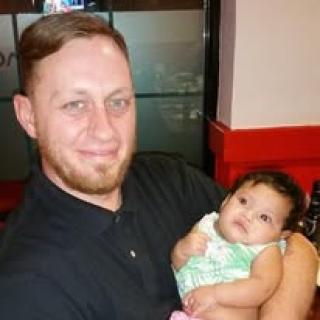On a recent frigid early morning in a cramped, small-town Kroger twenty minutes outside Columbus, a long line twists and turns near the in-store pharmacy, one of 2,200 in-store pharmacies Kroger operates.
The line is somewhat socially distanced, mostly middle-aged men, some wearing camo, others sporting Harley Davidson logos, some have brought their own folding chairs. Fights have nearly broken out in the past over losing a place in line.
But this line of a dozen or so is not waiting for the vaccine. Kroger’s in-house state-controlled liquor store is mere feet from the pharmacy. They are waiting to find out if a high-end whiskey costing $400 a bottle has arrived or not.
When the liquor store’s door opens, the expensive whiskey did make it in overnight, and the line moves briskly with happy customers.
Standing not far from this scene is a long-time Kroger employee who spends her days stocking pizzas and other frozen goods into tall glass-doored freezers.
With tired eyes she glances at the absurdity of those buying $400 bottles of whiskey, then turns to a Free Press reporter.
“They got the whiskey but they can’t give us a vaccination…or another round of bonus pay,” she says quietly so no one else can hear.
She’s a 40-something mother whose pre-teen son has been battling a life-threatening disease for several years and his immune system is compromised. Sometimes he sleeps for two days straight, she says. Then awake for several days begging for her to help him fall asleep.
The Free Press can’t publish the mother’s name. Kroger management would eventually find a way to get back at her – that’s how they do, say Kroger store employees to the Free Press.
She makes roughly $15-an-hour. Worn down from an anxiety-fueled year, she returns to the rows of freezers, making sure the never-ending crush of demanding customers has their ice cream and vegetarian gluten free breakfast burritos.
Ohio’s difficulty in getting the vaccine into the arms of our elderly and at-risk fast enough has delayed the roll-out. Central Ohio Kroger’s did not receive any vaccine until the week of January 19th. And as the virus surged during the holidays, not a word from corporate about another round of hazard pay.
Sometimes these store enployee see customers maskless, other times they’re alarmed at how crowded the store is, Kroger’s own capacity measures simply a ruse to be ignored.
“They like to act like they care about our families, but they don’t,” said a Kroger cashier, another 40-something mom raising an immune compromised child, and in this case, on her own.
On Feb. 5th, the Cincinnati-based Kroger finally made a concession to its store employees, announcing it would give a $100 bonus to any employee who receives the vaccine’s full dose.
Any concession seems a bit late for some Kroger employees we spoke with. Back in December Kroger began giving vaccinations nationwide through a partnership with the US Department of Health and Human Services.
“The size and scale of our health care operation provides us with the unique ability to efficiently facilitate COVID-19 testing and immunize a large portion of the U.S. population, once the authorized vaccines become more widely available,” said Kroger executive Colleen Lindholz in a press release.
Grocery store employees are not frontline healthcare workers, but their risk is high as they come in contact with hundreds of customers on the daily.
They became a vital lifeline when the pandemic hit last spring and were declared “essential” – something Kroger Co. promoted through commercials and other expensive advertising, which keeps most local media tamed as they are dependent on Kroger’s ad dollars.
As Kroger lauded their store employees last May, that same month they ended the $2-extra-an-hour “hero pay.” More recently, Kroger, the world’s largest grocery store chain, shut down two Southern California stores after the city passed an ordinance making them give $4-an-hour extra hazard pay for 120 days.
The pandemic on the other hand has been a boondoggle for its corporate leadership, which of course is working from home. For Kroger’s 3rd quarter in 2020 it earned $2.9 billion in profits, up $1.2 billion compared to the same quarter in 2019.
“We’ve been talking to the Kroger Company about hero pay, which they discontinued, and we’ve never stopped talking to Kroger Company, as well as other companies we represent, about hero pay,” said UFCW Local 1059 (Ohio) President Randy Quickel to the Free Press. “I’m good with our members getting the $100 (for getting the vaccine). But do I think they deserve more? I know they do.”
According to the pro-labor Policy Matters Ohio, Kroger CEO and Trump supporterRodney McMullin took home $21 million in 2019. At the same meeting where he announced his frontline workers would lose their extra $2 hero pay, he stated he would not take a pay cut.
Kroger is also issuing another quarterly dividend to shareholders – those who don’t actually do any work for Kroger – this coming March. Paying 18 cents a share, or transferring $147 million to shareholders, according to the news and analysis site Popular Information.
“Kroger cutting hazard pay in the midst of a pandemic that has increased its profits underscores the disconnect between the value frontline workers are creating for their employers, and what they’re taking home as pay,” says Policy Matters Ohio researcher Michael Shields. “This is not about skills or economic value, it’s about power, and Kroger’s actions are a great case in point.”
He continued, “The public health crisis underscores what has been true all along: frontline essential workers are vital. They keep the food supply chain open, take care of us when we’re sick, bring our prescriptions to the door, and so much more. Recognition of these workers’ importance is growing.”
Essential Ohio, a grassroots org inspired by a national effort, sent a letter this week to Gov. DeWine and Health Department Director Stephanie McCloud demanding all workers who labor in-person be prioritized to receive the vaccine.



